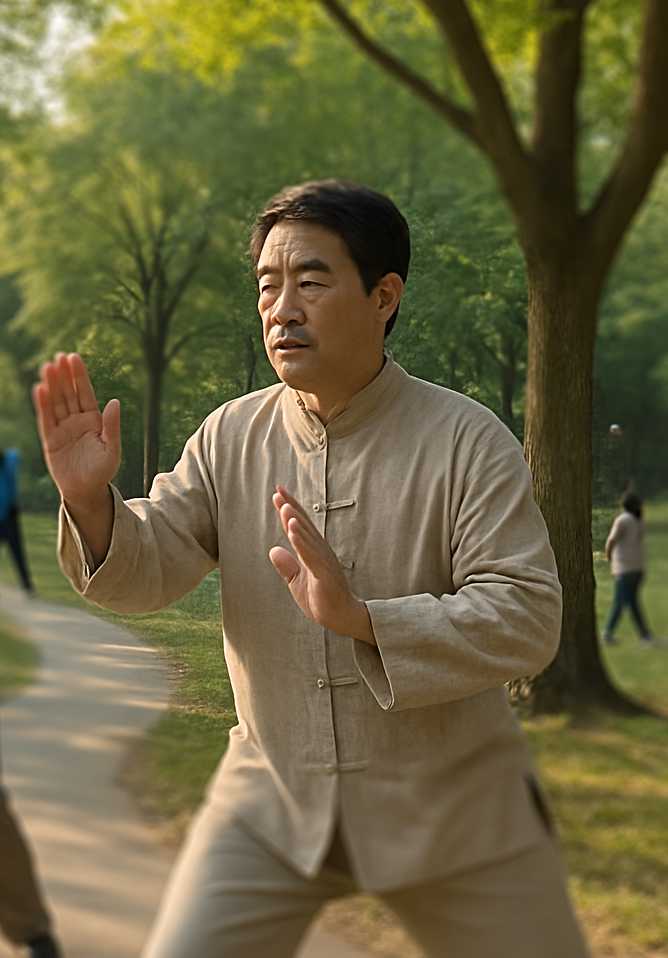Building Health in Your 40s and 50s
In Chinese tradition, the decades of your 40s and 50s are not yet a time of repair. They are considered a time of prevention. These years are seen as crucial for laying the foundation for vitality in your 60s and beyond. In Traditional Chinese Medicine (TCM) and yangsheng (nourishing life) philosophy, this stage of life is when you still have strong reserves of energy and blood, but subtle imbalances such as stress, poor sleep, and unbalanced diet can quietly take root if ignored.
Simple Habits to Start Today
- Set aside 15–20 minutes each morning or evening for qigong, taiji, or quiet walking.
- Eat lighter meals in the evening to allow the digestive system to rest.
- Go to bed before 11 pm to protect kidney and liver energy, which restore during sleep.
- Take short breaks during work to stretch and breathe deeply, easing tension.
- Enjoy time outdoors to support emotional balance and reconnect with nature.
Rather than waiting for illness or decline, the focus is on harmonizing body and mind now. Western medicine increasingly supports this idea. Research from Harvard and the CDC shows that middle-aged adults who adopt regular movement, better sleep habits, and balanced nutrition in their 40s and 50s are much less likely to develop diabetes, cardiovascular disease, and cognitive decline later. This mirrors Chinese wisdom, which emphasizes moderation and awareness before problems appear.
One of the most valuable habits to establish is a daily practice of mindful movement. Both qigong and taiji are particularly suited to this stage, though even walking or swimming can be beneficial when done consciously. Qigong’s breath-linked movements help calm the liver and strengthen the kidneys, which TCM views as vulnerable to overwork and stress in middle age. Taiji builds flexibility, balance, and mental clarity, counteracting the stiffness and anxiety that often accompany a busy modern lifestyle.
In China, it is common to see parks filled with middle-aged workers at dawn or dusk, stretching, practicing taiji, or simply strolling among trees. These routines are seen not as luxuries, but as everyday duties to oneself and one’s family—to stay well enough to continue contributing and enjoying life.
Western culture often glorifies intensity and overwork at this age. The Chinese perspective reminds us that steady, consistent effort brings the best results. Just fifteen to thirty minutes of gentle practice each day, combined with more mindful eating and adequate rest, can ease the wear and tear on the body and calm the mind.
For those in their 40s and 50s, health is not yet a crisis to manage. It is an opportunity to cultivate. Like tending a garden, the small habits you nourish now will blossom into strength and grace in the decades ahead.






